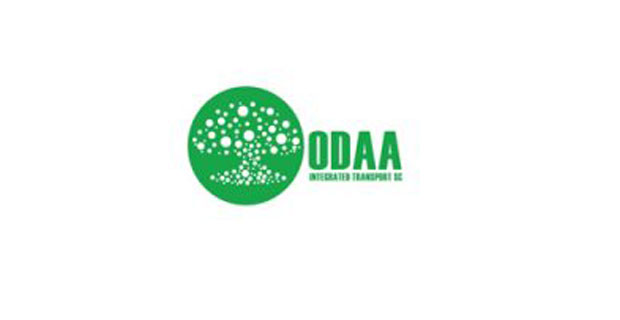
Fortune News | Jan 02,2021
Nov 9 , 2024
By Elisabeth Carpenter , Josh Burek
We are in a golden age of innovation, from artificial intelligence (AI) and electric vehicles to blockchain and composites. To unlock value from these technologies, though, businesses should transform themselves. According to a McKinsey & Company study, over 70pc of such efforts fall short.
Obviously, businesses adopting new technology need the right key performance indicators (KPIs) and internal alignment of their operations to ensure they get what they want out of it. But there is a bigger, often neglected factor that determines whether they are unlocking durable returns rather than merely chasing expensive tech trends. While upgrading old use cases and creating new ones constitute innovation, only the latter creates lasting economic and social value.
This tension is playing out now with generative AI. As Goldman Sachs noted earlier this summer, companies have yet poured one trillion dollars into AI without much to show for it. To maximise the return on investment in technology, business leaders should think like architects starting from a blank page. When digital cameras emerged a generation ago, consumers still took memory cards to brick-and-mortar stores to print their files. Today, we share images instantly with our phones and social networks.
This evolution reflects a common pattern in technology adoption. As entrepreneur Chris Dixon notes in "Read Write Own: Build the Next Era of the Internet," we initially use new technologies merely to continue old behaviours with greater speed, ease, or quality or at a lower cost. Only later do we leverage them in new ways to produce disruptive, lasting outcomes.
The leap from "skeuomorphic" thinking (when digital interfaces are designed to mimic traditional physical ones, like the “desktop” on your computer) to native thinking takes time. For example, the journey from the first digital cameras to the rise of Instagram lasted 15 to 20 years. Businesses that deploy technology in skeuomorphic ways can improve margins, such as by using QR codes instead of printed restaurant menus. But those who come up with new uses can create entirely new markets as GrubHub did with its food-delivery platform.
How can more businesses make the leap to a native mindset that unlocks greater gains?
One way is to look for friction. When we assume that points of friction in existing business models are fixed facts, we will struggle to escape older ways of thinking. But when we identify and focus on the sources of friction, we will often discover that they can be eliminated. The standard business imperatives of “faster, easier, cheaper” tend to keep us mired in skeuomorphic mode. They are so ingrained that we do not question whether the product or process we seek to improve should be preserved at all.
Amazon’s approach to innovation at Whole Foods epitomises this dynamic. In some locations, checkout is faster by allowing customers to scan their palms instead of inserting a credit card. Some of its stores have eliminated checkout altogether via "dash carts" that tally goods as we shop. There is a profound difference between speeding up a step and eliminating it.
“How can we improve checkout?” is a skeuomorphic question. “Why do we still need checkout?” is a native one.
Friction points are the proverbial elephants in the room. In our industry, financial technology, some of it feels like a permanent market feature.
When did we last wait three days and pay six dollars to send a “cross-border email”?
The very notion is ludicrous because we all transmit messages instantly, globally, and for free. Sending money across borders can and should be as seamless, given that the internet financial system is now well established. But, much of the broader industry is still captive to skeuomorphic thinking that views fees, delays, and walled gardens as facts of life. Globally, the average fee on remittance is six percent. It is as if we were still printing photos at a brick-and-mortar store.
When it comes to applying technology, users and functions should trump materials and attributes. Every genuine innovation has a unique power. To think natively, we must identify and tap into it. Digital photography’s unique power was not a high resolution; it was instant distribution. AI’s power is pattern recognition, not truth-telling.
Using AI to augment a web search is skeuomorphic. Using it to scan medical images for anomalies that humans may miss is a superior application. AI can reduce or eliminate friction points across healthcare. By monitoring changes to our baseline health metrics, for example, AI-powered wearables could help us spot an illness before it becomes serious. The US Defense Department has already piloted such a program to detect COVID-19 two and a half days before patients become symptomatic.
All business leaders seek greater efficiency. However, upgrading current products and processes is not enough to gain the most from technology. Success lies in questioning longstanding assumptions about how things are done and devising entirely new use cases.
PUBLISHED ON
Nov 09,2024 [ VOL
25 , NO
1280]

Fortune News | Jan 02,2021

Commentaries | Feb 27,2021

My Opinion | Jul 22,2023

Agenda | Oct 20,2024

View From Arada | Feb 20,2021

Radar | Aug 31,2019

Viewpoints | Jan 19,2024

Fortune News | Dec 21,2019

Commentaries | Oct 16,2024

Fortune News | Jun 15,2019

My Opinion | 131974 Views | Aug 14,2021

My Opinion | 128363 Views | Aug 21,2021

My Opinion | 126301 Views | Sep 10,2021

My Opinion | 123917 Views | Aug 07,2021

Dec 22 , 2024 . By TIZITA SHEWAFERAW
Charged with transforming colossal state-owned enterprises into modern and competitiv...

Aug 18 , 2024 . By AKSAH ITALO
Although predictable Yonas Zerihun's job in the ride-hailing service is not immune to...

Jul 28 , 2024 . By TIZITA SHEWAFERAW
Unhabitual, perhaps too many, Samuel Gebreyohannes, 38, used to occasionally enjoy a couple of beers at breakfast. However, he recently swit...

Jul 13 , 2024 . By AKSAH ITALO
Investors who rely on tractors, trucks, and field vehicles for commuting, transporting commodities, and f...

Jul 5 , 2025
Six years ago, Ethiopia was the darling of international liberal commentators. A year...

Jun 28 , 2025
Meseret Damtie, the assertive auditor general, has never been shy about naming names...

Jun 21 , 2025
A well-worn adage says, “Budget is not destiny, but it is direction.” Examining t...

Jun 14 , 2025
Yet again, the Horn of Africa is bracing for trouble. A region already frayed by wars...

Jul 6 , 2025 . By BEZAWIT HULUAGER
The federal legislature gave Prime Minister Abiy Ahmed (PhD) what he wanted: a 1.9 tr...

Jul 6 , 2025 . By YITBAREK GETACHEW
In a city rising skyward at breakneck speed, a reckoning has arrived. Authorities in...

Jul 6 , 2025 . By NAHOM AYELE
A landmark directive from the Ministry of Finance signals a paradigm shift in the cou...

Jul 6 , 2025 . By NAHOM AYELE
Awash Bank has announced plans to establish a dedicated investment banking subsidiary...